This article is inspired by a recent Malaysiakini interview with the United States Ambassador to Malaysia, Edgard D Kagan.
The interview reflected on the arrogance and cockiness of how the US sees itself as the so-called champion of the free world.
Now that it is Sept 11, it might be an appropriate time to reflect on US policies and assess how they have contributed to making the world safer - or not.
The end of World War II is attributed to the US bombing of Nagasaki and Hiroshima, which killed around 250,000 people using atomic bombs.
History books hail the US for bringing peace to the world. However, death and genocide did not end with World War II. Since then, the US has been involved in many other wars in smaller countries, causing widespread destruction..
To name a few: the Korean War (1950-53), the Vietnam War (1962-73), the Kosovo War (1991), the Gulf War (1991), Afghanistan (2001-2021), and Iraq (2003-2011).
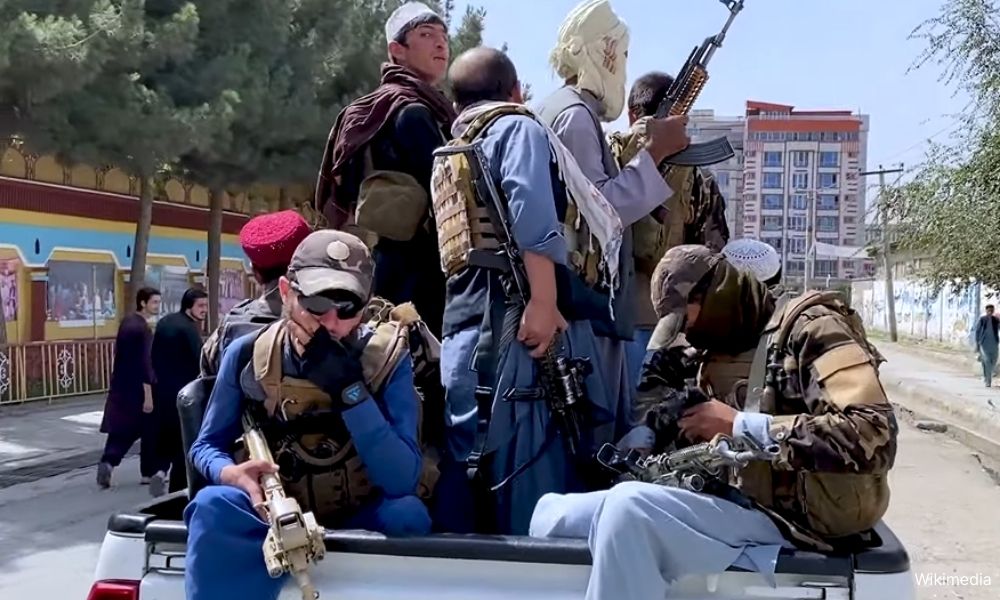
As this article is being written, the US continues to be actively involved in military operations in Syria, Yemen, and elsewhere.
Refugee crisis
Today, the US and its Western allies face significant domestic threats from refugees and terrorism - both of which are products of US imperialism and its foreign policies.
Who created the refugee crises in the West? Who started destroying these nations and triggering migration to the West?
Sept 11 was blamed on Osama Laden, who was initially trained by the CIA to fight the Soviets in Afghanistan.
Today, there is a massive refugee and migrant community in the developed world, as evidenced by recent protests in England. Yet, it is these Western powers that bombed Middle Eastern countries, creating the current refugee crisis in the first place.
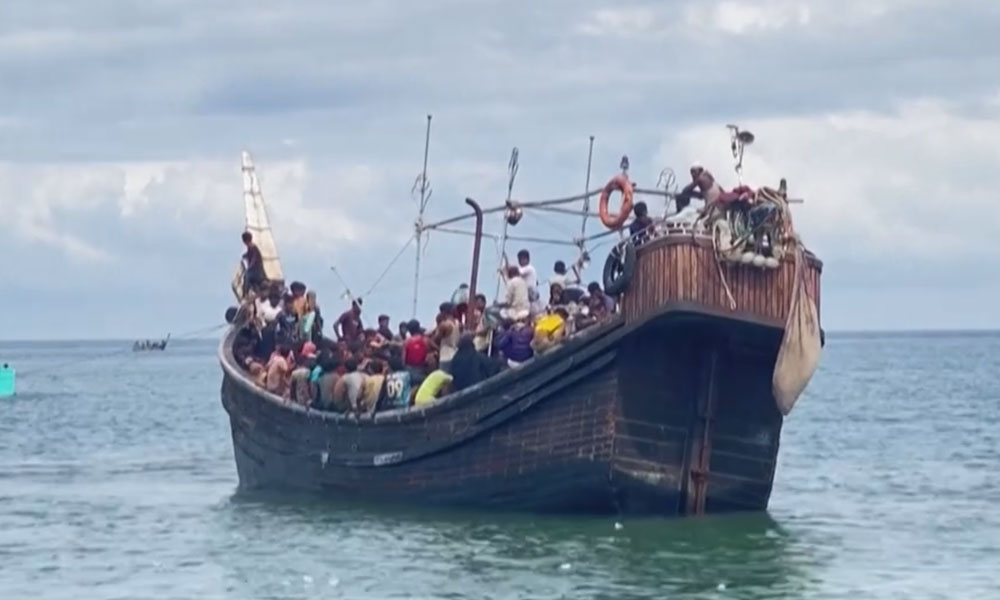
So, the US, under the guise of human rights - which often translates to oil interests - bombs nations that oppose it, creates famine and hardship in those countries and generates a flow of refugees to the developed world.
Iran, under the Shah, was a US ally until he was overthrown by Khomeini. Saddam Hussein was a US ally until he crossed the line.
In the 1980s, the US and Britain supported Saddam in his war against Iran, providing Iraq with arms, money, satellite intelligence, and even precursors for chemical and biological weapons.
Later, they went to war against Iraq for using chemical weapons -although the US used such weapons widely in the Vietnam War.
Similarly, nations like Venezuela, Syria, Libya, and others have experienced attacks because their governments and leaders disagreed with US hegemony, leading to sanctions, embargoes, and wars.
The US criticises human rights violations in Afghanistan, Iran, and Syria but condones similar violations in Saudi Arabia, its closest ally.
The US, a country struggling to resolve racial division and curb gun violence within its own borders, cannot credibly preach about world peace, democracy, and freedom to the rest of the world.
Rebuttals to the US ambassador
Kagan’s interview with Malaysiakini reflects the US’ perspective on the world. These views are often magnified by Western media, which control most media outlets and provide a skewed view to manufacture narratives that support their own economic interests and justify their goals.
I find Kagan’s points to be arrogant and cocky, and his arguments are filled with ambiguity and inconsistency. Let me address some of the views he presented.
The ambassador said, “In our experience, one-sided resolutions and one-sided actions are ineffective. It is perhaps something some countries feel good about doing, but ultimately the big difference is that people look to the US not for what we say but what we do. If we want to be effective, there needs to be balance.”
On most international issues, the US is often isolated. The ambassador gives the impression that the US vetoes resolutions solely because they are one-sided.
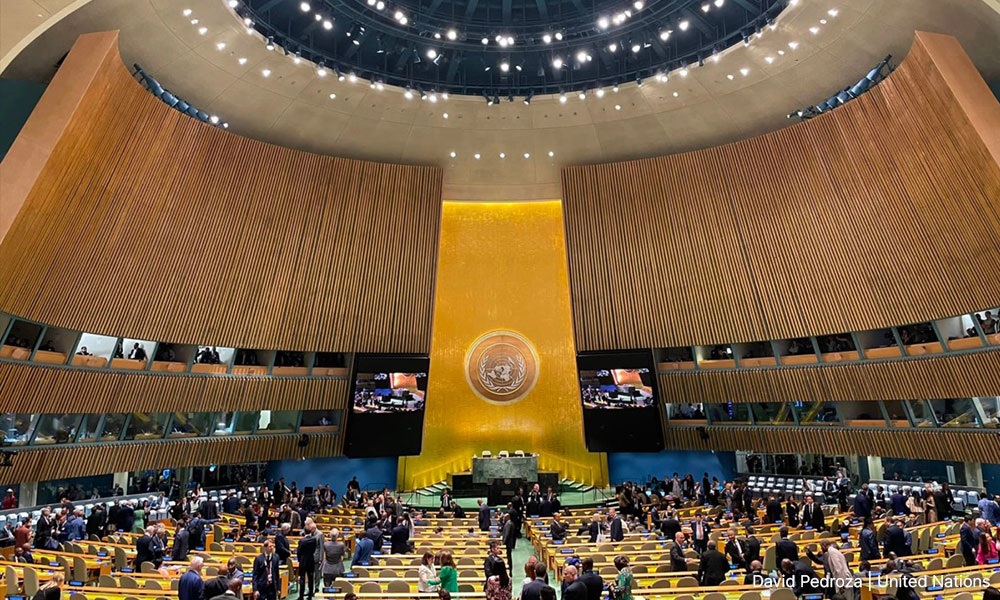
Recently, many US allies have supported calls for a ceasefire, only to be opposed by the US and Israel. They attribute this to Hamas not agreeing. Hamas is calling for a permanent ceasefire, while Israel seeks a temporary one. The global community largely desires peace and progress.
Consider the following resolution on Cuba from Nov 2, 2023.
The UN General Assembly on Thursday voted by a large margin against the United States’ economic and trade embargo against Cuba, first imposed in 1960. A total of 187 states voted for the resolution put forward each year against the embargo with only the US and Israel voting against and Ukraine abstaining.
Once again, one can see how isolated the US is on popular issues. The Cuban medical teams have helped more nations in distress with their doctors and vaccines compared to their superpower neighbour, whose biggest export to the world is war and weapons.
Kagan reiterated in his interview the US’ support for peaceful protests and boycott actions, stating, “We believe in peaceful protests. That is acceptable and we support it. We recognise people have strong views, so have at it.”
The situation at home tells a different story. In the US, peaceful protesters are often attacked, and pro-Palestine supporters face numerous repercussions, including arrests, firings, suspensions, and loss of employment.
While mainstream media often censors this, social media clips reveal heavily armed enforcement officers arresting peacefully protesting students and professors at university campuses across the United States - the supposed “land of the free and home of the brave”.
A report from May 2024 indicated that more than 2,900 people have been arrested as authorities have intensified crackdowns on at least 61 college campuses across the US. Sit-ins have been met with tear gas, rubber bullets, pepper spray, and other forms of excessive force against peaceful protesters.
Ambassador, don’t you think this is a case of the pot calling the kettle black?
The ambassador questions, “Does anyone think the boycott has led to any improvements to conditions in Gaza? If someone wants to make that argument, I am open to hearing the basis for it.”
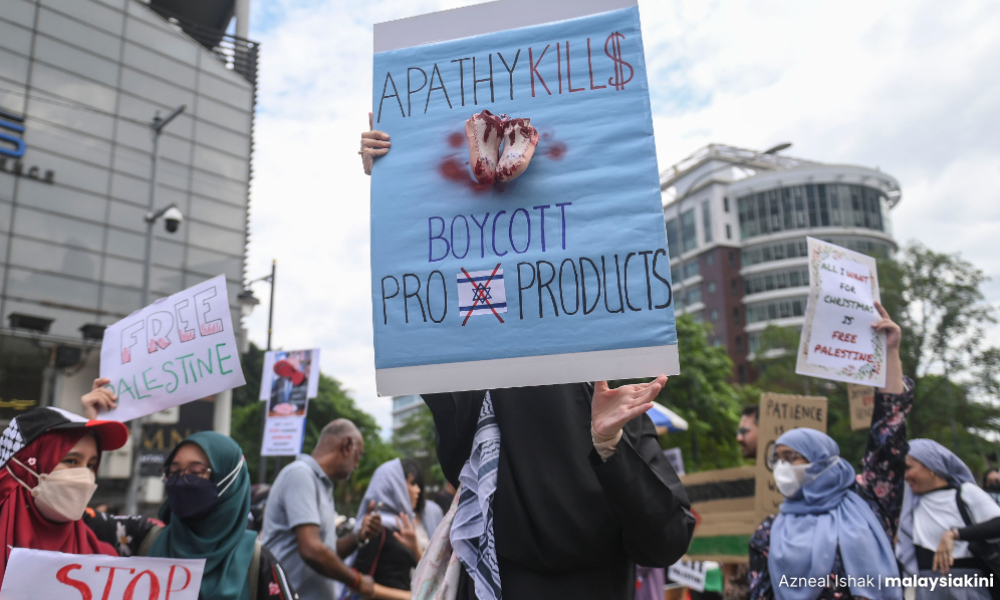
I think he should instead ask this question to McDonald’s and Starbucks outlets in Malaysia, which have complained about the impact of the boycott.
The ambassador also believes that the US relationship with and commitment to Israel lends it credibility to broker peace in the region. However, it seems the world is seeking other peace-makers as the US continues to be seen as biased.
In March last year, China brokered a historic deal to restore relations between Iran and Saudi Arabia. Even The New York Times acknowledged this shift, reporting in its March 11, 2023 edition that:
“The Americans, who have been the central actors in the Middle East for the past three-quarters of a century, almost always the ones in the room where it happened, now find themselves on the sidelines during a moment of significant change.
“The Chinese, who for years played only a secondary role in the region, have suddenly transformed themselves into the new power player. And the Israelis, who have been courting the Saudis against their mutual adversaries in Tehran, now wonder where it leaves them.”
The ambassador is surprised by the silence regarding the Oct 7 attack by Hamas, which he called unfair. Yet, what is the ambassador’s response to the massive genocides either carried out or sponsored by the US?
Consider the 1965/66 Indonesian massacre and the other Sept 11, 1973, in Chile, when democratically elected president Salvador Allende was overthrown and replaced by Augusto Pinochet with the support of the CIA through Project Fubelt.
According to one study, the US conducted at least 81 overt and covert interventions in foreign elections from 1946 to 2000. Another study reports that the US engaged in 64 covert and six overt attempts at regime change during the Cold War.
Another point made by the ambassador was that, across the board, the US has done more to support the people of Gaza in the last 20 years than any other country, in terms of assistance and contributions to their wellbeing.
If the word “Gaza” were replaced by “Israel” in the above statement, it would appear more truthful. Since Oct 7, in addition to the US leasing Israel two Iron Dome missile defence batteries, there have been reports of over one hundred military aid transfers to Israel.
Only two of these transfers, totalling about US$250 million, have met the congressional review threshold and been made public.
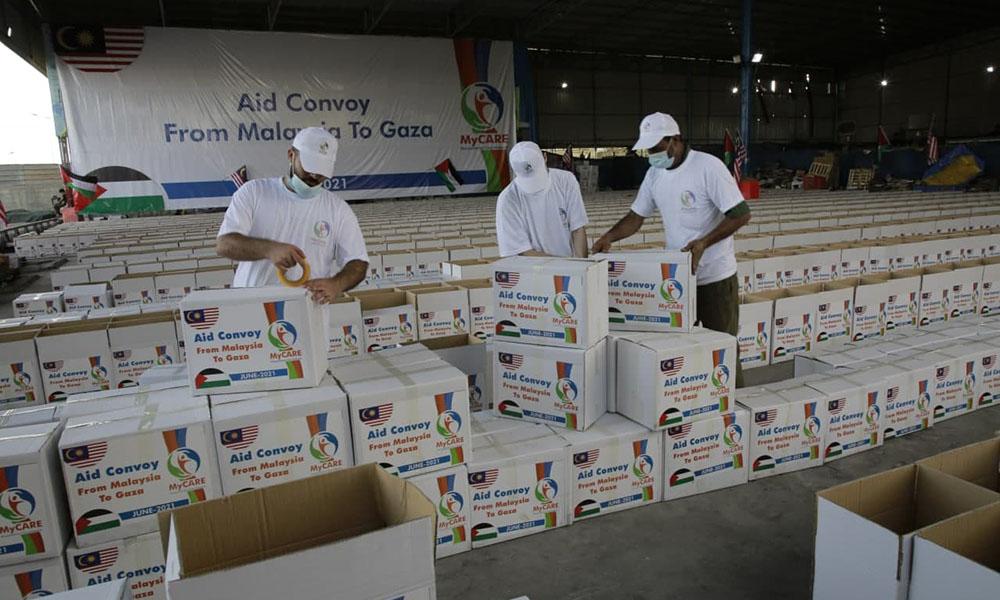
While other nations have truckloads of aid intended for the people of Gaza, the US continues its substantial aid to Israel, including tank and artillery ammunition, bombs, rockets, and small arms.
In April 2024, news reports indicated that the Joe Biden administration was considering new military sales to Israel valued at more than US$18 billion, including 50 F-15 fighter aircraft, although the shipments would not arrive for years.
The recent large protests in Israel demonstrate that even Israeli citizens do not blame Hamas for the stalled negotiations. Israel prime minister Benjamin Netanyahu has been creating obstacles and setting new conditions to ensure the war is prolonged, avoiding the need to hold an election in Israel, which was initially scheduled for early 2025.
The ambassador also said, “We also believe it is critical to de-escalate tension in the region. Obviously, it is not good for any of us in the region and anyone who cares about the region, if new tensions, new conflict erupts. We (the US) have been working very hard to do that (de-escalate tension).”
In reality, US foreign policy and its substantial interests in oil and gas are the sources of tension in the region. The US has been involved in, and funded one side or another, in all the conflicts currently occurring in the Middle East.
While waging war on Iran, Libya, and Afghanistan under the pretext of human rights, the US simultaneously endorses Saudi Arabia, its closest ally, and overlooks similar violations there.
The ambassador said, “I think it is something very sobering that when push comes to shove, people look to the US to do this. As Americans, we take that responsibility very seriously. Ultimately, from the American perspective, we recognise we will be judged by what we do, not just what we say.”
That is precisely my point: the US should not be judged by the myths created by its own media. The world would be a better and safer place if the US stopped meddling and trying to act as the world’s police officer.
The world and its people deserve a better future - one without war, climate catastrophe, and forced migration. - Mkini
S ARUTCHELVAN is the PSM deputy chairperson.
The views expressed here are those of the author/contributor and do not necessarily represent the views of MMKtT.




No comments:
Post a Comment
Note: Only a member of this blog may post a comment.